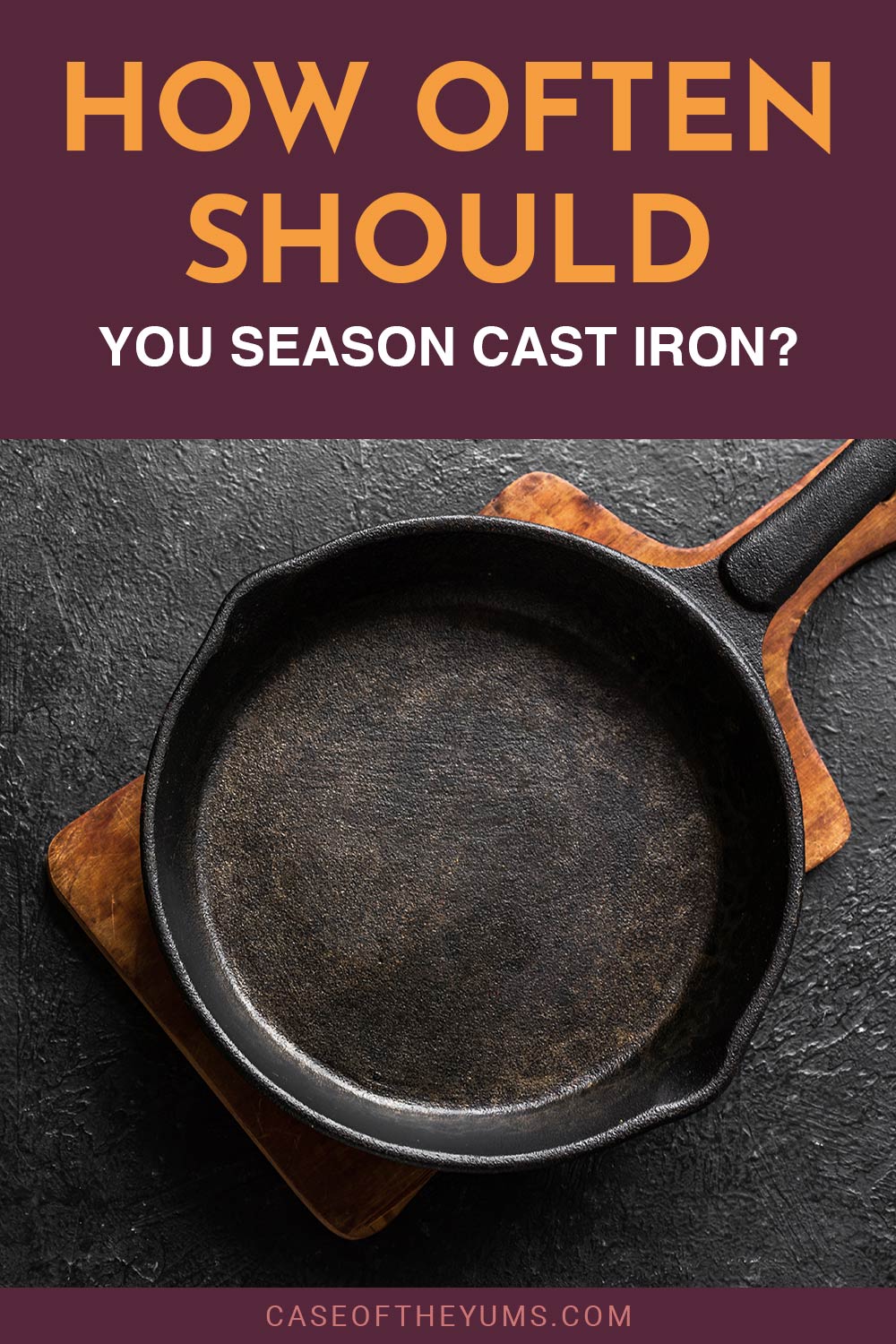How Often Should You Season Cast Iron?
We may earn commissions for purchases made through links on our site. Learn more on our about us page.
There are going to be certain practices that will allow a person to keep a piece of cast iron for a lifetime, even pass it down for generations.
With this in mind, it would be best to oil the piece after every usage, drying off all moisture to remove the chance for rust and keeping to this practice.
Beyond that, to refresh the flavor and protective layering, it would be ideal for seasoning a piece of cast iron kitchenware yearly at least two to three times. This will prevent most issues with flavor loss and rusting.

How Many Times Should you Season a Cast Iron?
This is a common debate among chefs and manufacturers on how many times a person should season a cast iron.
Over a lifetime, a piece of well-maintained cast iron will be seasoned over a hundred times, generational pieces over a thousand times, depending on its history.
Throughout the year, as mentioned in the section above, there will be a common consensus on the need for at least an annual seasoning with two sprinkled in at the chef’s discretion.
Not to mention that the flavor is added to the seasoning with each use and should be preserved for future meals.
How Do You Know if Cast Iron Needs to be Seasoned?
To start, a well-seasoned piece of cast iron will have a smooth glossy surface and, in the cooking area, will have a grayish coloring from all the meals saved.
If you notice these layers becoming thinner or lesser than previously observed, you will need to consider a seasoning refresher.
The idea behind this process is to preserve flavor and create a seal against rusting, which savvy chefs know is a constant risk for cast iron cookery. If not taken care of, cast iron will degrade and become iron oxide material for the earth to recycle.
Can Cast Iron Rust Under Seasoning?
As mentioned above, the reason for the seasoning process beyond flavor is to help prevent the rusting of the cast iron kitchenware. If a piece is adequately cared for and seasoned regularly, there is very little chance of rust on the cast iron.
This does not eliminate the possibility that there will be a human error when performing the seasoning or oiling process.
The most common spot missed during these anti-rusting processes will be the bottom of the cast iron piece; just remind yourself to flip the skillet over when completing the after-cooking process.
Can You Season Cast Iron Too Much?
To be plain, you cannot over season a cast iron piece of cookery as long as the procedure is done correctly.
A chef may have as many layers of seasoning as they want, depending on the goal of having so many layers, yet the consensus is that five total layers will suit most all needs.
For those that cook every day with cast iron, it would be recommended to season your pieces more often than those that use their cookware for special occasions or holidays. The result desired will be a rust-free cast iron with years of flavor sealed in.
What are the Signs you Need to Season Cast Iron?
The most telling sign that a piece of cast iron needs seasoning will be the presence of rusting, but this can be prevented by looking for other earlier signs.
For example, when you complete the seasoning process to have the desired layers, you can tell when oiling becomes thin by the consistency of gray glossiness on the surface of the cast iron.
Otherwise, the most common sign to oil your cast iron is when the meal is done. Once you see the sign of a course prepared, the cast iron is removed from the heat and washed; act with haste and oil that sucker and cook off any excess.
Final Thoughts on How Often Should you Season Cast Iron
Cast iron pieces are meant to last a lifetime, even generations, when properly cared for and seasoned regularly.
The best practice is to oil your cast iron skillets, pans, and pots, after every use to ensure the cookery will last, not to mention the benefit of years of flavor locked in the cast iron’s porous surfaces.
The worst thing a cast iron owner can do is leave any water on the surface of the piece, and rusting is the arch-villain of the cast iron world, to which regular seasoning is the hero.


